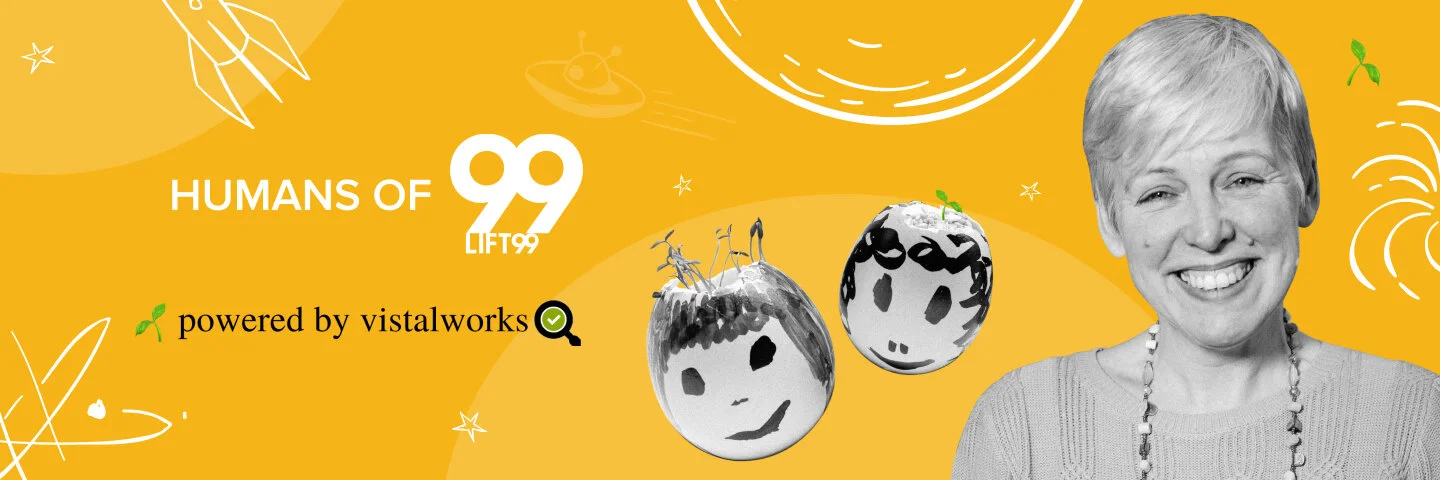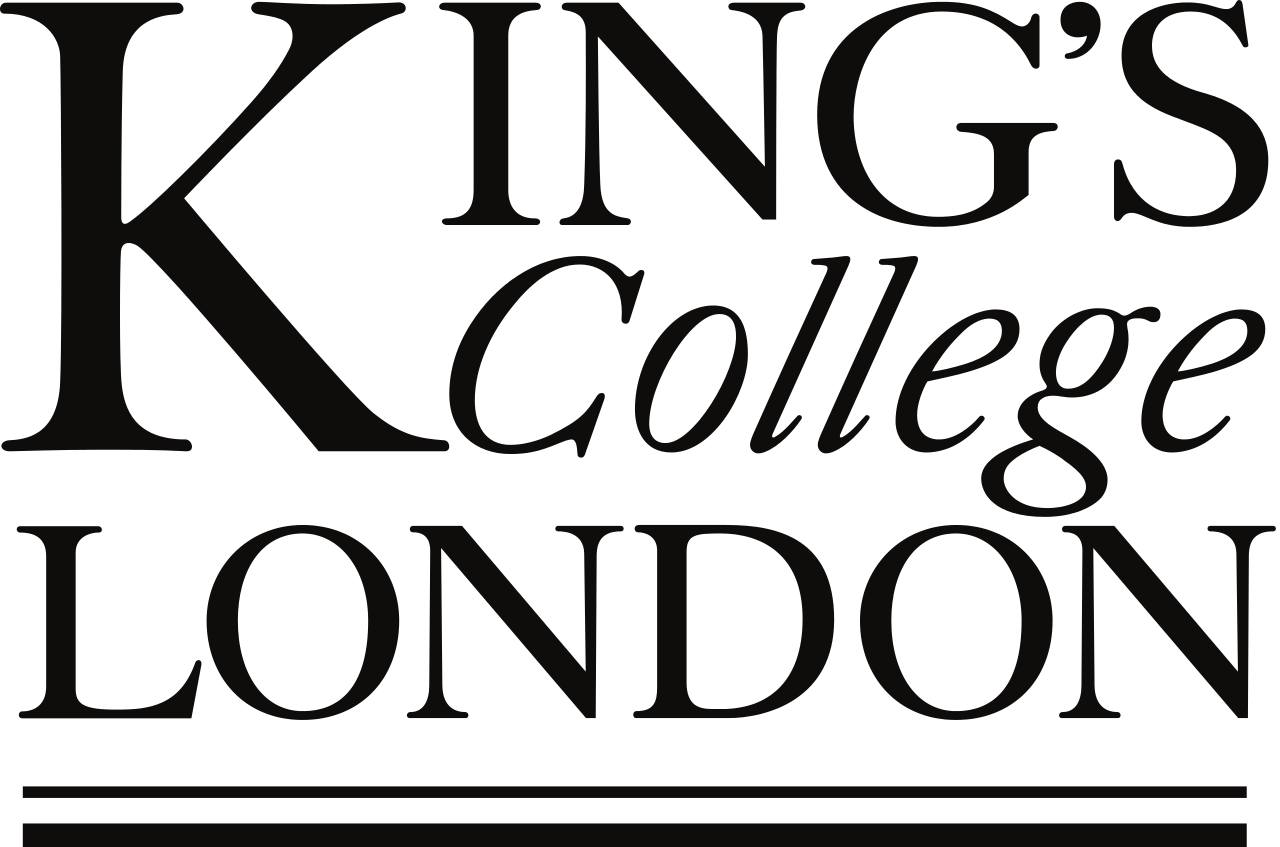HUMANS OF LIFT99 IS A SERIES OF STORIES FROM LIFT99 MEMBERS, HIGHLIGHTING THE INSPIRING PEOPLE WE SEE AROUND US EVERY DAY. NOT ALL OF US ARE FOUNDERS (YET), OR EVEN STARTUPPERS, BUT WE ALL HAVE A STORY TO TELL OR A SKILL TO SHARE - IT’S WHAT MAKES OUR COMMUNITY AS AMAZING AS IT IS.
HERE IS THE STORY OF VICKY BROCK - FOUNDER OF VISTALWORKS, MEMBER OF LIFT99
I grew up in Norwich, the rural east of England. None of my family has ever really left the county, but I always knew I wanted to leave for the big city, London. Nobody from my family knew anything about business or the tech industry, I needed to learn everything on the go. To this day my parents have no idea what I do.
You studied English Language & Literature at King's College London, has that helped you in any way?
English Literature Analysis, as I was taught, showed you the process of how to analyze a text. Since then all my businesses have involved some degree of data analytics. Since I come from a background of not that much money, I had to earn my own, so I also started my first business as a student. This was still in the time where not everybody had a computer and essays were handwritten. We had a huge room filled with Apple Macintosh computers and a free printing option at the university. I learned programming and computing on my small computer, when I was 7 years old, because in order to get a game, you had to spend a week typing in ones and zeros. I started charging my fellow students ridiculous amounts of money to type their essays into the computer and print them out. Of course at the time I didn't realize I was an entrepreneur.
What did you do after university?
At first, I didn't understand I was an entrepreneur so after university I went and got a sensible job at the theater. I'd only been there one week when they realized I knew about computers. They had just recently got a big computerised box office system and didn't have anybody who’d know how to do anything about it. That was my first job, I was in charge of the whole IT system. I already loved data then and started to find love for technology as well.
When did you realize you were an entrepreneur?
I realised that in my late 20’s and I haven’t had a real job since then. At that time I began to understand I'm a terrible employee, I didn’t like to be told what to do. I’ve always thought being an entrepreneur is the way to have economic control of your future. The idea of losing your job, because someone else screwed up, is terrifying.
“Being a startup founder is life, it’s a compulsion crossed with an obsession, crossed with existence. ”
Being a startup founder is life, it's a compulsion crossed with an obsession, crossed with existence. The only reason I have balance is because I'm married to Stephen, with who I co-found companies. Without him I would just do nothing but work. He reminds me to live. To me life and work are exactly the same. He reminds me that there are other things in life, like plants and going for nice walks, people, travel, music. And he's usually right. We met at university and we've been together since we were teenagers. We've been together for more than half of our life.
Talk about your first company
We'd just moved to Scotland and realised that the things we were interested in didn't exist there. We sat and thought about what we can do and like doing. That’s when we started doing research, web and data analytics. Because we were in quite a small place in Scotland, we were also kind of doing whatever people asked for - on one hand we were working with HP, Google and Microsoft and other big international companies, and on the other hand, we were working with the local university and the local council. Even four businesses away, each year we still do the analytics for Shetland Wool Week. It’s quite sweet and funny that we still do the analysis of how their festival went, because they were one of our first clients.
“Service (business) is so much harder than product business because you’re selling your time. ”
With the first business, we didn't know there was a process: how to create a product, find product-market fit, how to raise money, we didn't know any of it. Our first business was a service not a product, like all my other companies. Service is so much harder than product business because you're selling your time.
would YOU suggest doing a product business for beginner founders?
As a beginner founder I would probably do the same thing, but in a long term, yes. It's very difficult to build a team which means there's hardly any time to take a break. Even with the second business, I was able to get off more and have personal time. The difference is, when you’re building a product, especially software, you’re almost certainly getting investment, so you structure your growth and you’re very deliberate in how you grow the business. Whereas when you're doing service and selling your time, it's really hard to plan, grow and structure the business the way you would like to. I feel that with product-based businesses the process is just clearer, you can cut out some of the difficult bits other people have already figured out how to do.
Does it get easier to found companies?
“Investors like the fact that you’ve made a whole lot of mistakes!”
Finding funding for businesses gets easier each time because you know the process and have a better idea of how to do it. Also, investors like the fact that you’ve made a whole lot of mistakes. It’s important for founders to think of themselves as serial entrepreneurs, not like they’ve got one business for the rest of their lives. It’s about the little things you can learn in the early stages of the process in your business, that what you can improve with the next one. As a founder, you learn product after product, business after business.
How have you managed a remote team at Vistalworks?
With the founders, we spend time making sure we emotionally check in with each other - like how are we, how's life, how are Alan's kids, what pressure are you under, what do you want out of life. The only time I need to check in with Stephen and Alan in a formal co-founder capacity is if I want to go offbeat or do something totally different from what we agreed on.
Our whole team consists of about 20 people including us. Half of them I've never met because Scotland has been in lockdown for almost a year. We’ve had to get used to building a virtual team and how we can keep them engaged and stimulated. It's remote + lockdown + COVID-19 + Brexit + the real existential sh*t, where people are worried about their relatives, etc.
WHAT EFFECTS Has Corona had on Vistalworks as a business?
Vicky’s egg shell plant people.
All buying has moved online, also the crime has moved online. We’ve had the period where we’ve gone from trying to explain to people online illicit trade is a big problem, to them going “Shut up, I know, just solve it!” - which is an amazing opportunity.
Furthermore, thanks to COVID and this new remote work world, we have been able to escape Scotland. Now that it doesn't matter where people work from, I have an employee in Barcelona, one moving to Berlin and me living in Tallinn with Stephen. We were able to set up our e-residency, register the company here and have had a very European and beyond view of this. Thank god for Stephen, if he hadn't laughingly sent me the article about e-residency, we wouldn't probably be this happy and here.
How did you COME ACROSS LIFT99?
I’d heard about LIFT99 at Latitude 59 where I was a speaker. I’d seen the building and love the area. I was looking for a place to set up the company and where I could meet other people and have some kind of human contact. By the time I had my tour at LIFT99, I was so glad to see other people, dogs, decor not from IKEA... On paper I'm very pragmatic with all these logical factors, but when I came here all emotional things took over - dogs, warmth, friendliness, community - this works! The tour helped me realise I needed something more than an office and this definitely is more than an office.
Vicky Brock, a serial entrepeneur loaded with energy and ready to tackle the world!
Where do you take all this energy to keep going?
I am very resilient. It comes from being very competitive, mostly with myself. I either have to win or have a bloody good chance of winning or I won’t even bother. I'm way more interested in getting better at what I'm good at, than being less bad at what I'm terrible at. I have learned to spend time with the people who love you for who you are and not what you do. Work does not love you back! (Though hopefully, work does love ME back because I’m married to him, my co-founder Stephen!) You have to enjoy the process because the destination either never comes or it isn't where you thought it was... I’m even not sure that the destination exists. You need to find the journey energising in its own right.
On the cover photo:
Plants in eggshells - Vicky loves to grow things and her home (and usually her office) is filled with plants. These are eggshell plant people that she planted during the lockdown.






